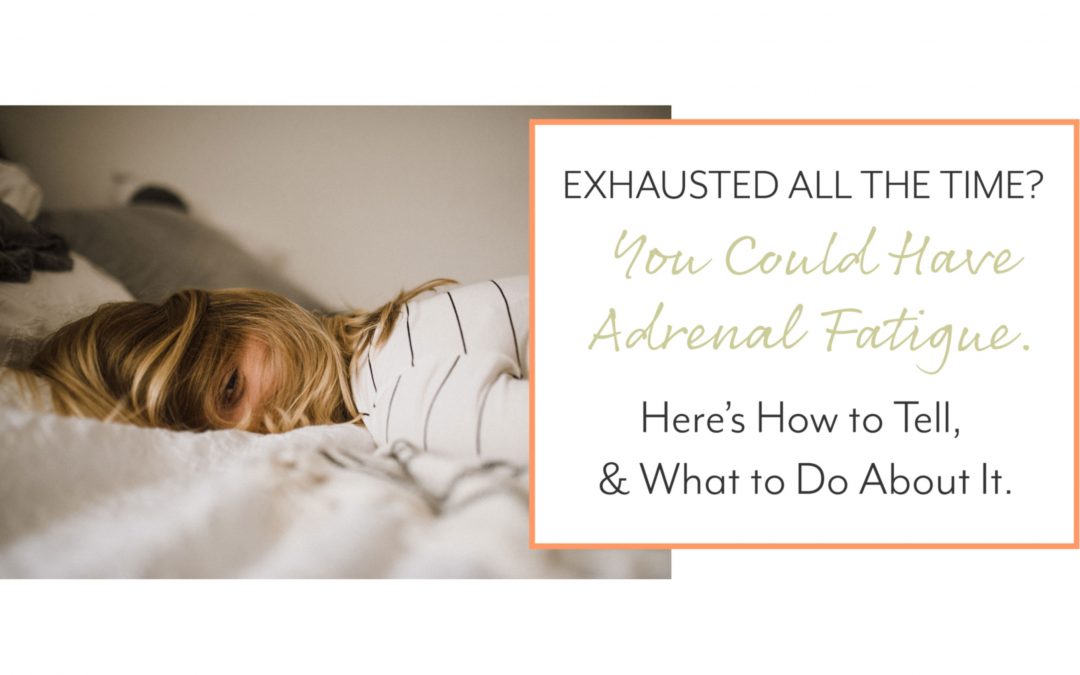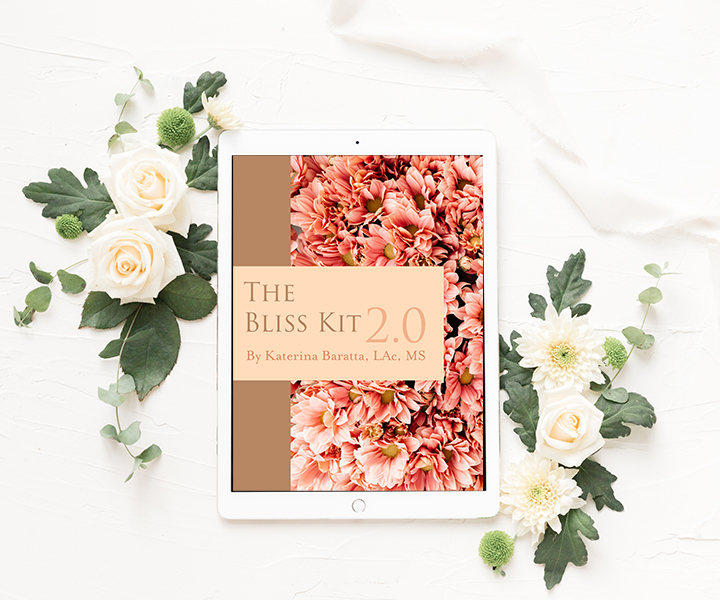Are you exhausted all the time?
Everyone jokes that moms are always tired.
And you and I both know that the struggle is REAL.
Especially at the beginning, when your lil ones need your physical body and careful attention for their survival.
But even with older kids, when you’re juggling your to-do list with parenting, the demands on you are pretty much constant.
And unless you run away to Bermuda, they aren’t letting up any time soon, sister!
But there’s a difference between being a little bit groggy here n’ there, and feeling completely depleted.
And it’s when you find yourself in the second camp that problems arise.
You feel crankier.
You have less patience.
You’re easily overwhelmed.
It’s almost impossible to get all of your chores and work done.
You most definitely aren’t presenting the best version of you to the world.
And you’re suffering because of it.
Your work and business (if you have one) are suffering because of it.
And your family’s suffering because of it.
Of course, we all get a little groggy every once in a while.
But if you’re a mom who’s trying to have, be, and do it all, then there’s a good chance that your fatigue is actually a sign that something bigger is going on.
Because being tired isn’t just inconvenient for you.
Exhaustion is actually a HUGE issue.
When you’re exhausted, it obviously impacts your mental health and productivity.
But what many people don’t realize is that when you’re exhausted all the time it also has major negative consequences for your physical health, too.
And not just because you’re too tired to work-out or cook a healthy meal!
When you’re exhausted and stressed, your adrenal glands secrete stress hormones like epinephrine and cortisol to help keep you going.
And because hormones are your body’s messengers, when certain hormones are secreted it changes the whole cascade of hormones that usually keep your body functioning.
Which means that if you aren’t well rested and relaxed, your body actually isn’t able to function as well as it should.
Now, evolutionarily speaking, this stress-response was actually a real life-saver.
Because stress-hormones increase your heart-rate, shuttle all of the blood out of your core and into your muscles, and increases your brain’s glucose uptake so you feel more alert.
And that means that when your stress-response is triggered, you can do whatever needs to be done, and do it fast.
But your stress-response was designed to be a contract-worker, not a full-time employee.
It’s only really available to work brief gigs and then you’re supposed to be able to get back to business without it.
When you’re chronically stressed, those same energy-boosting hormones keep shuttling attention away from your digestion, immune system, and reproductive system.
And this slow-down can cause some serious long-term health issues for you in addition to feeling exhausted all the time.
To make matters worse, if you overwork your stress-response, your adrenal glands eventually just stop taking your call.
Because just like you, they’re friggin’ exhausted!
And this phenomenon has a name.
When you feel exhausted because you’ve been dealing with chronic stress, it’s what natural health practitioners like to call adrenal fatigue.
Adrenal fatigue is what happens when you’re too stressed out or tired, for too long, and it starts to impact the quality of your life.
So if you want to feel like a normal functioning human being again, you’ve GOT to cut yourself -and your adrenal glands- some slack.
I’ll get into how to do that in a second.
But first let’s look at some other signs + symptoms that can be related to adrenal fatigue:
- Anxiety or depression
- Brain-fog
- Trouble concentrating
- Trouble with memory
- Lack of motivation
- Weight-gain/Trouble losing weight
- Bloating
- Insomnia
- Get sick easily and often
And from a Chinese medicine standpoint, we can also add menopausal symptoms to that list (whether or not you’re in menopause,) like night-sweats, hot-flashes, and dry lips and skin.
Moreover, because the release of certain hormones influences the secretion of other hormones, menstrual symptoms like PMS, an irregular menstrual cycle, and fertility issues can also be added to this list.
So as you can see, feeling exhausted because of adrenal fatigue is a real and serious issue.
I do want to mention that there’s some controversy in the medical community about whether or not adrenal fatigue is real from a physiological standpoint.
You can do that research on your own if it interests you.
But from a Chinese medicine standpoint, adrenal fatigue can be seen as Qi deficiency.
And Qi deficiency is a very real and observable phenomenon.
I’ve seen it time and time again with my patients.
But whatever label you put on it, you should always have your blood tested by a doctor to make sure you’re not dealing with something like anemia or a vitamin deficiency.
Because those can also have a huge impact on how you feel.
So what should you do if you feel exhausted all the time?
There are two phases to overcome adrenal fatigue.
The first phase is what I call the Recovery Period.
The Recovery Period is when you’re deep in the trenches of adrenal fatigue, or just starting to crawl out.
This can last anywhere from 1 to 12 months.
(But truth-be-told it’s different for everyone and largely depends on how well you’re able to follow the Recovery Period Protocol.)
During the Recovery Period, you’ve got to be more strict with yourself and really prioritize your self-care above everything else.
If you don’t, you’ll be dragged right back down into the trenches of exhaustion and your Recovery Period will stretch out indefinitely.
And the second phase is what I call the Maintenance Period.
The Maintenance Period is basically whenever you’re not in the Recovery Period and feel (mostly) “normal”.
During the Maintenance Period, it’s ok to push yourself more, especially when it comes to exercising and working on projects that excite you.
In fact, a good way to tell that you’re out of the Recovery Phase is when you feel more exhilarated than exhausted after a work-out or work-marathon.
But anytime you notice yourself feeling more depleted than energized I recommend switching back to the Recovery Period Protocol for a few days.
Because you don’t push yourself straight into another bout of adrenal fatigue.
Here’s the Recovery Period Protocol:
1. Cut the Caffeine
Contrary to popular belief, caffeine doesn’t actually wake you up.
What it does do is block the receptors in your body that track adenosine, which is a chemical that makes you sleepy.
And when these receptors are blocked, the adenosine can’t get where it needs to go, so you feel more awake.
But the problem with this is that while caffeine is blocking those receptors, adenosine is building up in your system.
And when the caffeine finally wears off, the adenosine rushes in, making you feel extra groggy and craving another cup of joe.
But even more harmful than wanting an afternoon nap, having too much adenosine floating around your system messes with your other hormones.
So your whole sleep-wake cycle gets totally thrown off.
And when your sleep-wake cycle is thrown off, your body releases stress hormones to make up the difference and keep you functioning.
But functioning is NOT the same thing as thriving, my friend.
So cut down on the caffeine, or even better, cut it out altogether and give your hormones a chance to recover.
Because when you do, it won’t take long for your hormones to regulate themselves.
And pretty soon you’ll feel wide awake without a chemical stimulant helping you.
2. Prioritize Rest and Relaxation
This one should be a no-brainer, but given our go-go-go society, it has to be said.
If you’re exhausted, it’s your body telling you that you need to rest.
I know how inconvenient it can be.
And I know how hard it can be to say no to things that you really want to do.
But if you don’t make rest and relaxation your #1 priority when you’re in the trenches of adrenal fatigue, then you’re never going to recover.
You read that right.
Never.
Because this isn’t something that just goes away.
You have to give your body the chance to restore itself every once in a while.
And when you do then you won’t just have an occasional mini-upswing of energy.
You’ll have a whole avalanche of energy to carry you through all the things you want to do.
But you have to give yourself time to get there.
Trust me, it will come.
But until then, rest as much as you can.
And if you can, sleep on a regular schedule.
Unless you have kids waking you up throughout the night, go to bed by 10 and wake up at 6.
Every. Single. Day.
Because that consistency will help your hormones find a natural and healthy rhythm too.
And that, again, will give you a lot more energy than you have now.
3. Take Supportive Herbs
Herbs have been used for thousands of years to both boost energy and help reduce the negative impact of stress.
The best herbs for adrenal fatigue are called adaptogens.
But although you can get adaptogens like reishi, ashwagandha, and rhodiola over the counter, it’s always best to consult a trained herbalist before taking stronger medicinal herbs like these.
However, some herbal teas and tinctures like passionflower, lavender, peppermint, holy basil, and chamomile are considered to be safe enough for anybody to take on a regular basis.
And although they have a reputation for making some people sleepy, they actually just help you chill out and can be consumed anytime, morning, day, or night.
So drink a few cups of these relaxing herbal teas throughout the day to help give your nervous system the break it needs.
And then consult a trained herbalist (like me!) to get a customized herbal formula that is perfectly suited to your unique needs.
4. Customize Your Diet
If you’re dealing with adrenal fatigue, your diet is an essential, not-to-be-overlooked component in your recovery.
Because the food you put in your body literally provides the building blocks for your organs, muscles, bones, brain, and other body tissues.
And you want to make sure that your body has all the building blocks it needs to do its job as well as it possibly can.
So the first thing you want to do is to make sure that you’re eating good quality ingredients.
Leave out as many toxins as you can (which just add more stress as your system tries to process them out).
Organic and pasture-raised is the way to go for all produce and animal products.
Eats mountains of veggies at every meal, a good amount of protein, and including lots of healthy fats in your diet too.
Avoid all processed or refined ingredients, and never eat something that your great-grandmother wouldn’t recognize as food (hello preservatives, “natural flavors”, and scary food-coloring).
That’s where you start.
But it’s a good idea to take this one step further.
If you really want to feel better in your body and have more energy again, then you’ve got to customize your diet to your unique needs.
Because your body has unique strengths and vulnerabilities that can either be supported or thrown off-kilter by the food you eat.
And when you’re in a vulnerable state like adrenal fatigue, you really don’t have the time or energy to mess around.
Want to get a Customized Nutrition and Holistic Wellness Plan that’s completely tailor-made for what YOU need in order not just recover, but truly thrive?
Then click here to set up a FREE 15-minute consultation with me.
Because my Customized Nutrition and Holistic Wellness Plans will show you exactly how to nourish your unique body, step-by-step.
I can’t wait to help you feel like yourself again!






